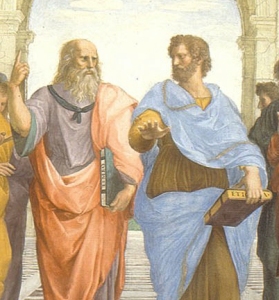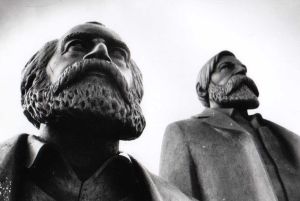 Numbers don’t lie. Or shouldn’t. Like everything else, numbers can become a rhetorical device of deception, the subtle instrument of a cunning persuasion. There is something Machiavellic about numerical constructions. Especially in mathematical equations which too often we mistake as the simple establishment of an identity between two terms.
Numbers don’t lie. Or shouldn’t. Like everything else, numbers can become a rhetorical device of deception, the subtle instrument of a cunning persuasion. There is something Machiavellic about numerical constructions. Especially in mathematical equations which too often we mistake as the simple establishment of an identity between two terms.
Modern economics -that so much resembles what Marx used to call the ‘vulgar economy’- seems to feed on this confusion, generating what it is a paradoxical relative objectivity.
Frederick Jameson, in his Representing Capital, asserts that Capital could be seen, among other things, as an attempt to resolve the “riddle of the equation.” In other words: if we are all good people who exchange commodities or sell them (i.e. exchanging them for money) for a reciprocal benefit, if we buy and sell according to fair laws, how is it possible to make profit out of an exchange?
If we pay the right amount of money, if we give something to receiving something in return as an equal and fair counterpart, how is it possible for someone to gain any wealth through this simple operation? There is of course some sort of mystification at work disguised by the technicality of modern economic theory. The numbers contribute to entrench the riddle of the equation behind a protective wall. Continue reading
 The language of ideology, as Althusser prophetically noted, is everywhere. It is not only in the dominant institutions, but also in the small private components of our society, those “private institutions” which according to the neo-classical and liberal tradition should assure the plurality of voices and freedom of expression within society.
The language of ideology, as Althusser prophetically noted, is everywhere. It is not only in the dominant institutions, but also in the small private components of our society, those “private institutions” which according to the neo-classical and liberal tradition should assure the plurality of voices and freedom of expression within society.
